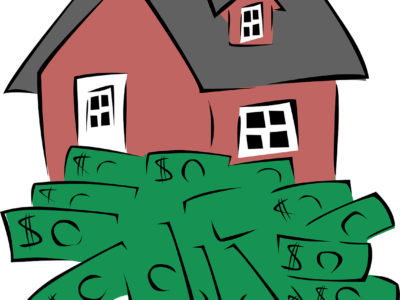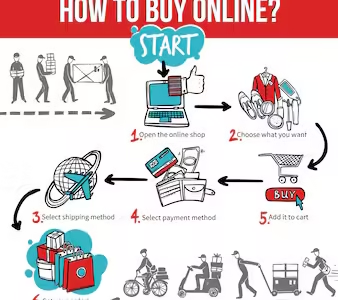
Have you ever thought of buying a foreclosure property? Before you get started, it’s important to familiarize yourself with the kind of property you want to buy, and the steps involved in the purchase process. In this article, we will take a closer look at what a foreclosure property means, the benefits of buying foreclosed homes, and how to buy a foreclosure property.
- What is a Foreclosure Property?
- Benefits of Buying a Foreclosure Property
- Types of Foreclosure Properties
- Understanding the Foreclosure Process
- Researching Foreclosure Properties
- Assessing the Condition of a Foreclosure Property
- Financing Options for Buying a Foreclosure Property
- Making an Offer on a Foreclosure Property
- Closing on a Foreclosure Property
- Conclusion: Is Buying a Foreclosure Property Right for You?
What is a Foreclosure Property?
Foreclosure is when a homeowner is unable to make their mortgage payments, leading to the lender seizing the property. A foreclosure property is a house or real estate that has been repossessed by the lender due to the owner’s default on the loan payment. These properties are typically sold at a lower price than their market value, making them an attractive option for homebuyers and investors looking for a bargain.
Foreclosure properties come in various forms, including bank owned real estate, government-owned properties (HUD homes), and the distress sale property sold at auction. Each type of foreclosure has its own set of considerations and processes, which we will explore in detail later in this blog.
Benefits of Buying a Foreclosure Property
Among the key benefits of buying a foreclosure property is its potential for significant savings. Since foreclosed homes are often sold below the market value, buyers have the opportunity to secure a great deal. This is particularly appealing to first-time homebuyers who may be looking to enter the real estate market but have limited funds.
Additionally, buying a foreclosure property presents the investor with the potential for a higher return on investment. If you’re an investor looking to flip or rent out a property, foreclosure gives you a substantial profit margin. With the right renovations and strategic marketing plan, you can quickly turn a foreclosure property into a lucrative venture.
Another advantage of buying a foreclosure property is that it allows you to own a home at a lower cost. This can be especially advantageous for buyers on a tight budget or investors looking to invest in real estate without breaking the bank.
Types of Foreclosure Properties
There are several types of foreclosure properties, each with its own unique characteristics and buying process. It’s important to understand these types to be able to navigate the foreclosure market easily and with utmost convenience.
1. Bank-Owned Properties (REOs)
When a property fails to sell at a foreclosure auction, it becomes the property of the lender or bank. These properties are commonly known as Real Estate Owned (REO) properties. Buying an REO property involves a direct negotiation between the buyer and the bank, or their assigned foreclosed listings agent.
2. Government-Owned Homes (HUD Homes)
The U.S. Department of Housing and Urban Development (HUD) acquires properties through foreclosure when the borrower has an FHA-insured mortgage. These properties are then sold by HUD through their designated real estate agents. Buying a HUD home involves following specific guidelines and participating in a bidding process.
3. Distress Properties at Auction
Foreclosure auctions allow buyers to bid on properties that have been repossessed by lenders. These properties are typically sold to the highest bidder at a public auction. Buying a property at auction requires thorough research and careful planning, as the process can be fast-paced and competitive.
Understanding the Foreclosure Process
If you’re learning how to buy a foreclosure home, the first thing you should understand is the foreclosure process itself before diving into the foreclosure market. This knowledge will help you navigate the various stages involved and make informed decisions along the way.
The foreclosure process begins when the homeowner defaults on their mortgage payments. The lender will then initiate the foreclosure proceedings, following a legal process that may vary depending on the state. This process generally involves pre-foreclosure, auction, and post-foreclosure stages.
During the pre-foreclosure stage, the homeowner still has the opportunity to catch up on their mortgage payments and prevent foreclosure. This is also the stage when foreclosure properties may be listed for sale as short sales, where the lender agrees to access less than the outstanding mortgage balance.
The auction stage is where foreclosure properties are sold to the highest bidder. These auctions can take place at the county courthouse, online, or at designated auction venues. It’s essential to research and understand the auction process in your area before participating.
Finally, the post-closure stage occurs when the property has not been sold at the auction. At this point, the property becomes an REO and is typically listed for sale by the lender or their listing agent.
Researching Foreclosure Properties
Finding foreclosed listings is a crucial step in the process of buying a foreclosure property. Fortunately, there are several resources available to help you find these listings.
One way of finding foreclosed homes for sale is by working with a real estate agent who specializes in foreclosures. These agents often have access to exclusive foreclosure listings and can guide you through the purchasing process. Besides, many real estate websites offer foreclosure search filters, allowing you to search online for “foreclosed homes for sale near me.”
It’s crucial to thoroughly research each foreclosure you are interested in. This includes reviewing property details, photos, and any available inspection reports. Remember to check for any outstanding liens or encumbrances that may affect the property’s title.
Assessing the Condition of a Foreclosure Property
Foreclosure properties are typically sold as-is, meaning the buyer is responsible for any necessary repairs or renovations. It’s important to assess the condition of a foreclosure property before making an offer to be aware of any potential issues.
One way of assessing a property’s condition is through a professional home inspection. A qualified inspector will thoroughly evaluate the property’s structure, electrical systems, plumbing, and other essential components. Their report will provide you with valuable insights into the property’s condition and any repairs that may be needed.
Also, consider the neighborhood and surrounding properties when assessing a foreclosure property. If the neighborhood is declining, or there are many other distressed properties in the area, it may affect the property’s value and potential for appreciation.
Financing Options for Buying a Foreclosure Property
Securing financing for a foreclosure property can be slightly different from the traditional homebuying process. It’s essential to explore your options and find a financing solution that suits your needs.
One option is to obtain a conventional mortgage from a lender. However, keep in mind that many lenders have specific requirements for properties they will finance. Some lenders may require the property to be in good condition or have a certain occupancy rate.
Another way of financing the purchase of a foreclosure property is opting for an FHA 203(k) loan, which allows borrowers to finance the purchase and renovation costs of a foreclosure property. This can be particularly beneficial if you’re planning extensive repairs or renovations.
Additionally, some lenders offer specialized loans for purchasing foreclosure properties, such as REO loans or foreclosure loans. These loans may have specific terms and requirements tailored to the unique challenges of buying a foreclosure property.
Making an Offer on a Foreclosure Property
When making an offer on a foreclosure property, it’s essential to approach the process carefully. Here are a few tips to help you navigate the offer stage:
- Determine the Property’s Market Value: Research comparable sales in the area to get an idea of the property’s fair market value. This will help you make an informed offer that reflects the property’s true value.
- Consider Repairs and Renovations: Take into account any necessary repairs or renovations when determining your offer price. Factor in the cost of these improvements and adjust your offer accordingly.
- Be Prepared for Competition: Foreclosure properties often attract multiple offers, especially if they are priced below the market value. Consider submitting a strong offer, possibly above the listing price, to increase your chances of success.
- Work with a Real Estate Agent: Having a knowledgeable real estate agent on your side can greatly improve your chances of successfully securing a foreclosure property. They can help you navigate the offer process, negotiate with the bank or listing agent, and ensure all necessary paperwork is completed correctly.
Closing on a Foreclosure Property
Once your offer has been accepted, it’s time to move forward with the closing process. This involves finalizing the purchase and transferring ownership of the property to the buyer.
During the closing process, you’ll need to review and sign various legal documents, such as the purchase agreement, loan documents, and title transfer paperwork. It’s important to carefully review these documents and seek legal advice from a real estate attorney or any other property professional if needed.
You’ll also need to arrange for a final walkthrough of the property before closing to ensure it’s in the agreed-upon condition. If you identify any issue during the walkthrough, you may need to negotiate repairs or adjustments to the purchase price.
Finally, on the closing day, you’ll need to bring the necessary funds for the down payment, closing costs, and any other expenses associated with the purchase. Once all the paperwork is signed, and the funds have been transferred, you’ll officially become the owner of the foreclosure property.
Conclusion: Is Buying a Foreclosure Property Right for You?
Buying a foreclosure property can be a lucrative investment opportunity for those willing to put in the time and effort. However, it’s crucial to approach the process with caution and utmost due diligence.
By understanding the different types of foreclosure properties, the foreclosure process, and how to assess a property’s condition, you’ll have adequate information to help you make informed decisions. Additionally, exploring financing options and working with an experienced real estate agent can greatly increase your chances of success.
Remember, buying a foreclosure property comes with risks. Therefore, it’s important to carefully consider your financial situation, long-term goals, and ability to handle the potential challenges that may arise.
If you’re prepared to navigate the complexities of the foreclosure market, buying a foreclosure property can be a rewarding experience, providing you with a great deal and the opportunity to transform a distressed property into your dream home or a profitable investment.
So, take these steps, do your research, and embark on your journey to finding a foreclosure property that meets your needs and budget.
Happy house hunting!










